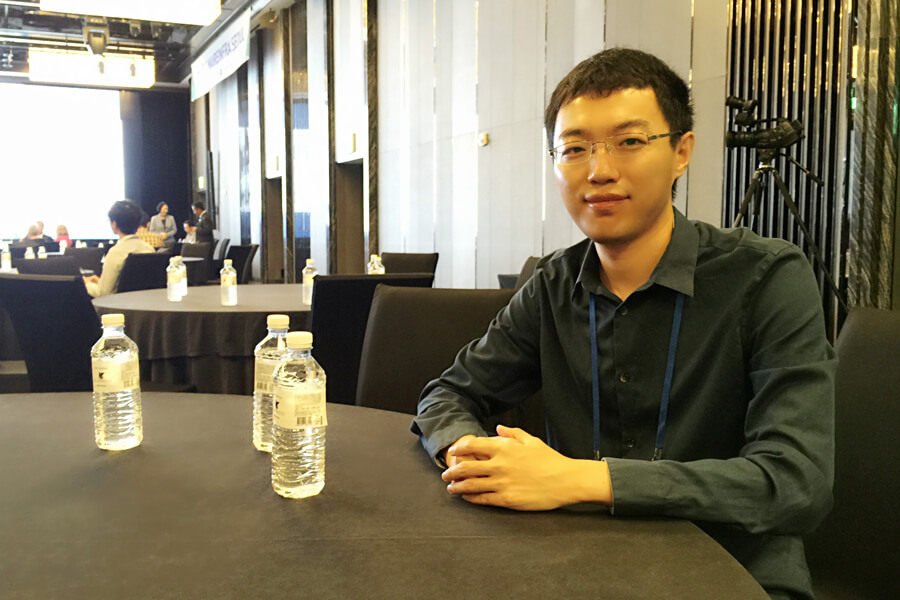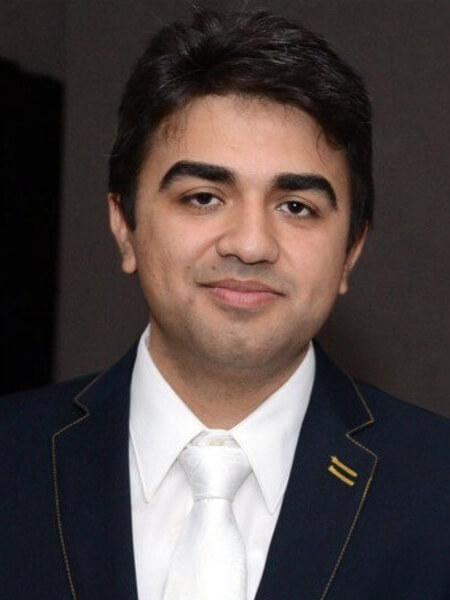CoE students nominated for elite Schmidt Fellows program
The first class of fellows was named in 2018 and includes 14 postdoctoral students from institutions such as Harvard, Stanford, MIT, University of Pennsylvania, Virginia Tech, Cambridge, and Oxford.
The selected Purdue CoE students are Sikai “Sky” Chen and Tariq U. Saeed, Civil Engineering; and Parul Verma, Chemical Engineering.
Nominees must have completed, by June 30, 2019, a Ph.D. in the natural sciences, engineering, mathematics or computing. Fellows will be provided with a $100,000 stipend that includes a full-time, 11-month or longer postdoctoral research study in a field-leading laboratory of their choosing. They focus on a discipline that is different from their existing area of expertise with the goal of the fellows obtaining a broader view of the world.
The next step for the three CoE students is to complete another round of application materials. Short-listed applicants will be invited to face-to-face interviews, and final selections will be made in April 2019.

Chen’s research revolves around three themes — highway safety, autonomous vehicles, and infrastructure management — and aligns with Vision Zero, an international initiative that aims to eliminate the 2 million highway fatalities annually worldwide. He said these fatalities have devastating consequences across the board. “Billions of dollars are lost each year in the form of lost earnings and the loss of purchasing power of families, and the emotional pain and suffering of relatives left behind. Even a marginal reduction in highway fatalities can have resounding effects on communities all over the world.”
Chen’s other academic interests include deep learning, artificial intelligence, optimization, and applications of machine learning and data mining. He has published 11 peer-reviewed articles in renowned journals and given more than 10 presentations at international conferences.
“I feel very honored to be nominated,” Chen said. “I also feel a deep sense of responsibility borne out of the realization that the program fellows seek to address specific critical global problems.”

Saeed is a doctoral researcher of transportation and infrastructure systems engineering at The Next-Generation Transportation Center (NEXTRANS) and U.S. Department of Transportation Center for Connected and Automated Transportation (CCAT).
Some of Saeed’s research experience includes the use of knowledge from statistics, econometrics, finance, economics, psychology, machine learning, predictive analytics, risk-based lifecycle economics, and data visualization.
He was awarded the 2016 ThinkSwiss Research Scholarship by the Office of Science, Technology, and Higher Education of the Embassy of Switzerland in Washington D.C. after a national competition. He carried out research in Zurich and was honored by the embassy upon his return. A Fulbright Scholarship recipient, he has published 10 journal articles in reputable journals and given 20 technical papers at 15 international conferences.
“The emphasis of this program on ‘interdisciplinary’ makes it a most appealing opportunity for me as I strongly believe that to find sustainable solutions to the existing and emerging societal challenges, it is extremely important to have both depth and breadth of knowledge,” Saeed said.

Since coming to Purdue for graduate work in the fall of 2014, Verma’s research has evolved into investigating neuropathy through a mathematical study of Hodgkins-Huxley equations in order to determine the conditions under which hyperexcitability is established.
She is planning on an academic career and has focused her dissertation work on liver metabolism, drug dynamics, metabolomics, cell cycling, and neuroscience. During her thesis work, Verma has gained expertise in statistics, machine learning, optimization, metabolomic data analysis, mathematical modeling, and dynamical systems analysis.
She is the recipient of the Lynn Fellowship and has given several oral and poster presentations as well as serving as a mentor for undergraduate research and a teaching assistant.
“I am very excited for the next round,” Verma said. “This program would immensely help me in getting a postdoctoral position of my choice and would provide a platform to network with fellow post docs.
Throughout my Ph.D. dissertation work, my projects have been of interdisciplinary nature, covering several topics. I strongly believe that for greater impact, we need collaboration across disciplines.”
